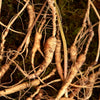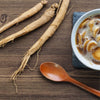4 Misconceptions About Korean Red Ginseng Debunked
4 Misconceptions About Korean Red Ginseng Debunked
Korean red ginseng has attained the place of a world-renowned herb due to its many health benefits. The herbal medicine comes with a broad range of healing properties. However, the herb has several misconceptions and myths associated with it. Separating the facts from the myths can be a difficult job. Yet, here we have debunked some of the common misconceptions about Korean red ginseng.
Myth 1: Korean Ginseng should Not be Taken During Summer.
Fact: This is not true. During summer, we are more susceptible to losing physical strength because of excessive sweating. Hence, getting adequate nutrients during summer is recommended. Korean ginseng/Asian ginseng is considered as a metabolism stimulant, thereby helping us recover energy in summer.
Korean ginseng can be used irrespective of season. A boost in circulation of blood was misunderstood as increase in temperature of the body. The herb promotes blood circulation, which increases skin temperature, however, there is no change in core temperature of body. Professor Fujimoto, College of Medicine at Kyushu University in Japan and professor Sakata, College of Medicine at Oita University in Japan showed that Korean red ginseng [1] in powder form alleviated physical disorders caused by high temperature. It was also found by them that ginseng counteracts body temperature increase induced through endogenous pyrogen. This indicates ginseng's buffering effect on body temperature.
Koreans usually eat Samge-tang (a ginseng-chicken soup, one of the favorite traditional foods of Koreans) in summer for overcoming the heat. Nowadays, Samge-tang is taken irrespective of season.
Myth 2: Korean Ginseng is Helpful for Weak and Elderly People Only.
Fact: No. Several research articles support the fact that Korean red ginseng and the active ingredients in it help delay the aging process and strengthen immune system [2]. However, it may be true that the potent activity of the herb is more in abnormal subjects as compared to normal (healthy) subjects. According to studies reported so far, ginseng's potency depends more on physical condition of subjects than on their age. Clinical study conducted with healthy adults in their 20s indicates that the herb is helpful for enhancing physical exercise. Owing to this, globally renowned sportsmen take ginseng daily.
A clinical study was conducted in China-Japan Friendship Hospital with 55 subjects. They had been taking a regular dose of 3 g of Korean red ginseng for 1 month. The study showed that cardiac function was improved during exercise.
In conclusion, the effectiveness of Korean ginseng is relatively more in weak subjects or the elderly with reduced physical function, as compared to healthy, young adults. However, healthy, young adults are also advised to take ginseng to prevent disease.
Myth 3: Korean Ginseng can be Used Based on Physical Constitution.
Fact: Korean ginseng plays an effective role in several organs. Some people are of the opinion that their physiological constitution is not compliant with Korean ginseng. But this does not have any scientific basis. From the point of view of Oriental medicine, a medicinal role is played by ginseng in the stomach and spleen. Hence, we may say that the herb has a great effectiveness for the individuals having a small yin constitution, i.e., individuals having weak digestive functions. Ginseng's pharmacological effects were verified by different pharmacodynamic experiments, where the herb normalized internal organ functions in a non-specific way.
Healthy individuals having increased body temperature (different from the case of fever derived from infection) or individuals experiencing adverse reactions on ginseng use are advised to consult a qualified medical practitioner, and take ginseng in the way advised by the doctor.
Myth 4: Korean Ginseng Causes Nasal Bleeding as a Side Effect.
Fact: In the philosophy of Oriental medicine, ginseng is classified as upper medicine, a herb inducing no side effects, and so, it can be used for long time periods.
No side effect of ginseng was demonstrated in chronic, subacute and acute toxicity tests. Korean ginseng's safety is also supported by many clinical experiments. Ginseng has been classified as GRAS (Generally Recognized As Safe) by FDA (Food and Drug Administration), USA. Moreover, British Herbal Compendium, German Commission E Monograph, and World Health Organization (WHO) monograph state that there are no contraindications or side effects of ginseng.
However, based on century-old experience with ginseng, it is recommended that individuals susceptible to nasal bleeding and having abnormally high body temperature should not take ginseng. An individual with fever is also recommended not to take ginseng. As for individuals with influenza, they should take ginseng to promote recovery of their physical strength after fever has gone.
Blood pressure increase was misunderstood as ginseng's side effect. However, in a multicentric study comprising 316 subjects and 13 hospitals, it was demonstrated that no abnormal variation occurs in blood pressure.
In several East Asian countries, it is said that increase in body weight and nasal rhinorrhea (nasal bleeding) is induced by Korean ginseng. However, this misunderstanding has been addressed by a clinical experiment carried out in China-Japan Friendship Hospital at Beijing in China. A total number of 75 subjects were grouped into two groups – Korean red ginseng-treated group (55 cases) and placebo-treated group (20 cases). A dose of 3 g per day of Korean ginseng was given for 1 month. No substantial side effects were noticed in the group treated with ginseng. However, in rare cases, hypersensitivity like diarrhea, flushing, headaches, and itching were noticed. No significant difference in side effect frequency was noticed between the two groups.
From the point of view of Oriental medicine, such mild side effect could be an adaptation response. It is experienced at the time of any physical change in health. But if such discomfort continues for several days, it is advised to decrease dosage of ginseng. So far, no serious adverse reactions have been induced by Korean red ginseng over the past 2,000 years of medicinal history.
In Conclusion
Korean ginseng is an extraordinary herbal medicine loaded with healing effects. However, there are several misconceptions surrounding the herb. Despite these rumors, ginseng has very low side-effects, and is helpful for most people. It has the reputation of being the world's most famous stress-fighting (adaptogenic) herb, which also boosts energy and stamina, improves the immune system, has antioxidant properties (is a superfood), helps regulate blood circulation, supports healthy brain and memory functions, and promotes relaxation and balance. A few common myths have been busted in this article. Yet, if you have any specific concerns, or are on medication, you may seek the advice and approval of a naturopathic physician or herbalist.
References
2. https://www.ncbi.nlm.nih.gov/pmc/articles/PMC3659612/
-
Posted in
-CheongKwanJang, Health Benefits
 Stamina
Stamina Energy
Energy Immunity
Immunity Antioxidant
Antioxidant Beauty
Beauty Fitness
Fitness Blood Circulation
Blood Circulation Liver & Heart
Liver & Heart Bones & Joints
Bones & Joints Eye & Brain
Eye & Brain Digestion
Digestion Relax & Sleep
Relax & Sleep For All
For All Men's Health
Men's Health Woman's Health
Woman's Health Kid's Health
Kid's Health Jar
Jar Stick
Stick Pouch
Pouch Root & Slices
Root & Slices Shot
Shot Pill
Pill Tea & Powder
Tea & Powder Candy
Candy

 Our Brand
Our Brand Korean Red Ginseng
Korean Red Ginseng Premium Ingredient G1899
Premium Ingredient G1899






